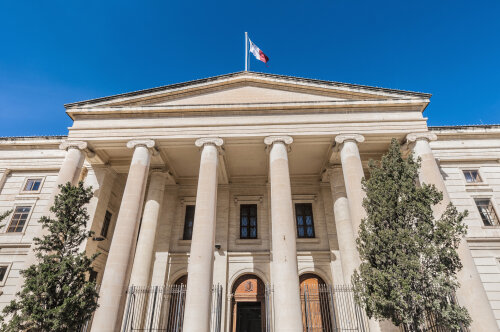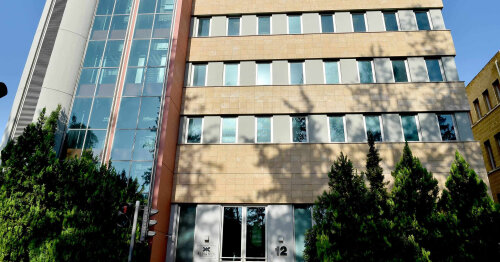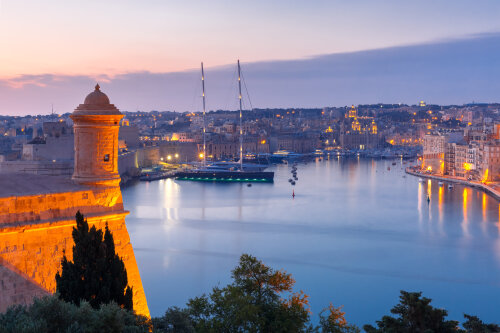Best International Lawyers in Birkirkara
Share your needs with us, get contacted by law firms.
Free. Takes 2 min.
List of the best lawyers in Birkirkara, Malta
About International Law in Birkirkara, Malta
International law in Birkirkara, Malta, is a multifaceted field that combines elements of public and private international law. As one of Malta's major towns, Birkirkara is home to a number of legal professionals and firms who specialize in matters that cross international borders, such as immigration, trade, and international business disputes. The legal landscape in Birkirkara is influenced by both Malta's local laws and Malta's adherence to European Union regulations and international treaties.
Why You May Need a Lawyer
There are several scenarios where you might need legal assistance in International law in Birkirkara, Malta:
1. Business Expansion: If you're looking to expand your business overseas, you may need advice on international trade laws, contracts, and compliance with foreign regulations.
2. Immigration: Whether you are seeking residency, work permits, or citizenship, an International law lawyer can help you navigate complex immigration laws and procedures.
3. International Disputes: Legal disputes that involve parties from different countries can be complicated by differing laws and jurisdictions. Legal expertise is crucial in resolving such issues.
4. Intellectual Property: Protecting your intellectual property rights internationally requires understanding both local and international legislation and procedures.
5. Taxation: International businesses often face intricate tax regulations. Legal counsel can provide essential guidance on international taxation laws to ensure compliance and optimize tax obligations.
Local Laws Overview
Birkirkara, being part of Malta, adheres to the legal framework established at both national and EU levels. Key aspects of local laws that are relevant to International matters include:
1. Immigration Law: Governs the entry, residency, and citizenship of foreign nationals in Malta.
2. Trade and Commerce: Laws related to international trade, tariffs, and commerce, often influenced by EU legislation.
3. Taxation: Local tax laws, as well as those applicable to international transactions and businesses operating across borders.
4. Intellectual Property: Protecting copyrights, trademarks, and patents in accordance with both local and international laws.
5. Dispute Resolution: Legal procedures for resolving disputes involving international parties, including arbitration and cross-border litigation.
Frequently Asked Questions
1. What is international law?
International law refers to the rules, agreements, and treaties that are binding between countries. It governs how countries interact with each other and covers areas such as human rights, international trade, and environmental regulations.
2. How can I find a qualified International law lawyer in Birkirkara?
You can start by researching local law firms that specialize in international law, seeking recommendations from friends or business associates, or consulting the Chamber of Advocates in Malta for professional references.
3. What are the major factors to consider when dealing with international trade laws?
Key factors include export/import regulations, tariffs, compliance with local laws of the trading partner country, and international trade agreements affecting your business sector.
4. How do I apply for a work permit in Malta?
Work permits in Malta are typically applied for through the Maltese government's employment and training corporation. Legal assistance can help ensure your application meets all requirements and is processed efficiently.
5. What are the steps for resolving an international business dispute?
Dispute resolution can involve negotiation, mediation, arbitration, or litigation. Each step has its procedures and may fall under different jurisdictions, requiring knowledgeable legal guidance.
6. How is intellectual property protected internationally?
International intellectual property protection is governed by treaties such as the Paris Convention and TRIPS Agreement. It often involves registering your IP in multiple jurisdictions where you seek protection.
7. What taxes apply to businesses operating internationally in Malta?
Businesses may be subject to various taxes, including corporate income tax, value-added tax (VAT), and international withholding taxes. Specific tax obligations can vary, so professional advice is recommended.
8. Can I obtain dual citizenship while living in Malta?
Maltese law permits dual citizenship, depending on the agreements with other countries. Legal advice is essential to understanding the requirements and implications of holding dual citizenship.
9. Are there special regulations for starting a business in Malta as a foreigner?
Yes, there are specific regulations and procedures for foreign nationals starting a business in Malta, including company registration, obtaining necessary licenses, and meeting compliance requirements.
10. What are the benefits of resolving disputes through arbitration instead of court litigation?
Arbitration can be quicker, less formal, and more confidential than court litigation. It allows parties to select arbitrators with specialized knowledge relevant to their dispute.
Additional Resources
For further information and assistance, consider contacting the following resources:
1. Chamber of Advocates in Malta: Provides a directory of licensed attorneys and law firms.
2. Malta Business Bureau: Assists businesses with international trade-related issues.
3. Identity Malta Agency: Handles immigration and citizenship applications.
4. Malta Financial Services Authority (MFSA): Regulates financial services and can provide guidance on compliance with financial regulations.
Next Steps
If you need legal assistance in international law, consider the following steps:
1. Identify Your Needs: Determine the specific areas where you need legal advice, such as immigration, business trade, or dispute resolution.
2. Research Lawyers: Look for legal professionals or firms that specialize in international law. Check their credentials, experience, and client reviews.
3. Schedule Consultations: Arrange initial consultations with a few lawyers to discuss your case and evaluate their approach.
4. Gather Documentation: Prepare all relevant documents and information before meeting your lawyer to ensure a comprehensive discussion of your case.
5. Legal Representation: Once you find a suitable lawyer, retain their services and follow their advice to address your international legal matters effectively.
Lawzana helps you find the best lawyers and law firms in Birkirkara through a curated and pre-screened list of qualified legal professionals. Our platform offers rankings and detailed profiles of attorneys and law firms, allowing you to compare based on practice areas, including International, experience, and client feedback.
Each profile includes a description of the firm's areas of practice, client reviews, team members and partners, year of establishment, spoken languages, office locations, contact information, social media presence, and any published articles or resources. Most firms on our platform speak English and are experienced in both local and international legal matters.
Get a quote from top-rated law firms in Birkirkara, Malta — quickly, securely, and without unnecessary hassle.
Disclaimer:
The information provided on this page is for general informational purposes only and does not constitute legal advice. While we strive to ensure the accuracy and relevance of the content, legal information may change over time, and interpretations of the law can vary. You should always consult with a qualified legal professional for advice specific to your situation.
We disclaim all liability for actions taken or not taken based on the content of this page. If you believe any information is incorrect or outdated, please contact us, and we will review and update it where appropriate.
















